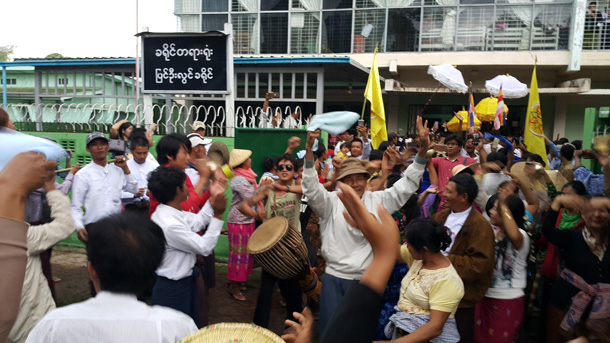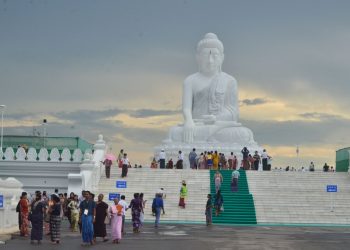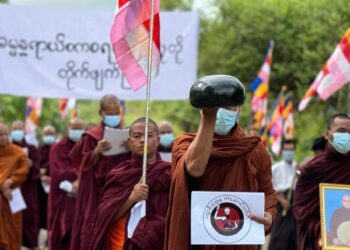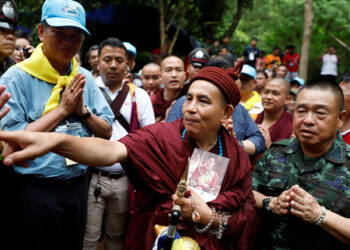PYIN OO LWIN, Mandalay Division — A court in Pyin Oo Lwin District on Thursday dropped the remaining charges against U Eindaka, the abbot of the Yay Pu Monastery in Mandalay Division’s Mogok Township, after the lawsuit against him was withdrawn.
U Eindaka, widely known as “Yay Pu Sayardaw,” was facing possible legal repercussions under Burma’s Mining Law for digging up earth around the area inside his monastery’s compound where he had intended to rebuild an old pagoda.
“Because the plaintiff has submitted a letter saying that he wishes to withdraw the charges, the court has reviewed the case and, accordingly, decided to drop the charges,” said the Pyin Oo Lwin district court judge during Thursday’s hearing.
“Sayadaw and the other four men charged with him under the [Mining Law] are free leave, and the machines and tools that had been presented to the court as evidence will be returned to their owners,” the judge added.
U Eindaka was arrested in June of last year and had also been charged with illegally possessing timber under the Forestry Law. He was faced with either three months in prison or paying a 20,000 kyats (US$17) fine. His supporters opted to pay the fine on Wednesday.
“I was arrested without having committed any unlawful acts and have had to spend more than 10 months in prison. I welcome the court’s decision as well as the plaintiff’s withdrawal of charges,” U Eindaka said after the court session.
“But even though I’m a free man, there are still many others who await trial in prison who were also charged under unjust laws in an unjust judicial system. If the country’s judicial system is really to change, it’s important to review these people’s cases and to act fairly in order to prevent them from having to suffer as I did.”
Outside the courthouse, under heavy rain, dozens of U Eindaka’s supporters, many of whom had traveled all the way from Mogok, played traditional Shan gongs and drums, danced and wept with joy as they welcomed U Eindaka and his newfound freedom.
U Eindaka, who had been defrocked while he was in prison, was able to undergo the proper Buddhist rituals and receive blessings and honors from Pyin Oo Lwin’s senior monks, allowing him once again to don his robes and re-enter the monkhood.

















